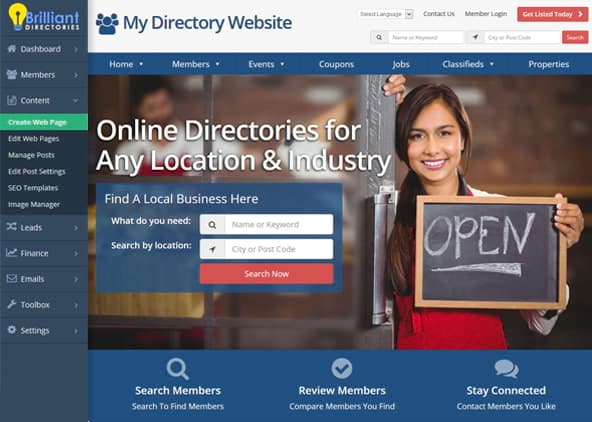
Learn the basics of affiliate marketing, including types like Pay-Per-Sale, Pay-Per-Click, and Pay-Per-Lead, with recommended software like Post Affiliate Pro and Tapfiliate. Discover tips for successful integration, such as choosing the right software, creating compelling offers, and monitoring performance. Explore real-world use cases for e-commerce, SaaS, and service businesses, and find solutions to common challenges.
Affiliate programs have been gaining traction as an effective way to boost revenue and extend marketing reach. For those unfamiliar, affiliate programs involve partnering with individuals or companies (affiliates) who promote your products or services. In return, these affiliates earn a commission for each sale or action generated through their promotional efforts.
The beauty of affiliate programs lies in their simplicity and effectiveness. By leveraging a network of affiliates, businesses can tap into new audiences and drive sales without hefty upfront marketing costs. But there’s more to the story. Let’s break down the types of affiliate programs, the software that can help run them, and pro tips for successful integration.
What are the different kinds of affiliate programs?
Affiliate programs come in various forms, each with its unique structure and benefits. Understanding these types can help you choose the right program for your business.
1. Pay-Per-Sale (PPS)
In this model, affiliates earn a commission for every sale they generate. It’s a straightforward approach where the affiliate’s earnings are directly tied to their performance.
- Common in e-commerce.
- High potential earnings for affiliates.
- Low risk for the business.
2. Pay-Per-Click (PPC)
Here, affiliates earn a commission based on the number of clicks their promotional links receive, regardless of whether those clicks result in a sale.
- Encourages high traffic generation.
- Works well for businesses aiming to increase website visits.
- Lower payouts compared to PPS.
3. Pay-Per-Lead (PPL)
Affiliates earn a commission for generating leads, such as sign-ups or contact form submissions. This model is popular in industries like insurance, real estate, and B2B services.
- Effective for lead generation campaigns.
- Affiliates focus on quality leads.
- Balances risk and reward for businesses.
4. Two-Tier Programs
These programs offer commissions not only for direct sales but also for sales made by sub-affiliates recruited by the primary affiliate. It’s a way to build a larger network.
- Encourages recruitment of new affiliates.
- Potential for higher overall earnings.
- Requires careful tracking and management.
What software helps run affiliate programs?
Running an affiliate program efficiently requires the right software. Here are some top options, each with a link to their official website:
1. Post Affiliate Pro
Post Affiliate Pro is a robust solution for managing affiliate programs. It offers comprehensive tracking, customizable commission structures, and detailed reporting.
2. Tapfiliate
Tapfiliate integrates seamlessly with various e-commerce platforms, making it easy to set up and manage your affiliate program. It offers real-time reporting and automated payouts.
3. Refersion
Refersion is designed for e-commerce businesses and provides tools for tracking sales, managing affiliates, and creating custom commission structures.
4. AffiliateWP
AffiliateWP is a popular choice for WordPress sites, offering seamless integration, real-time reporting, and easy management of affiliates and commissions.
5. ShareASale
ShareASale is a network that connects merchants with affiliates. It provides tools for tracking, reporting, and managing payouts, making it easy to scale your affiliate program.
What are some pro tips for successfully integrating affiliate programs to your website?
Integrating an affiliate program into your website requires strategic planning and execution. Here are some tips to ensure success:
1. Choose the right affiliate software
Selecting the appropriate software is crucial. Ensure it aligns with your business goals and offers the features you need for tracking, reporting, and managing affiliates.
- Look for user-friendly interfaces.
- Ensure robust tracking capabilities.
- Check for scalability options.
2. Create clear and attractive offers
Affiliates are more likely to promote your products if the offers are appealing. Provide competitive commissions and attractive promotional materials.
- Offer competitive commission rates.
- Provide high-quality banners and ads.
- Ensure your landing pages convert well.
3. Monitor and optimize performance
Regularly track the performance of your affiliates and optimize your program based on the data. This includes adjusting commission rates, improving promotional materials, and identifying top-performing affiliates.
- Use analytics to track performance.
- Reward top-performing affiliates.
- Continuously test and refine your strategies.
4. Provide support and resources
Support your affiliates with the resources they need to succeed. This includes providing training materials, promotional content, and a dedicated support team.
- Create a resource hub for affiliates.
- Offer training webinars and tutorials.
- Maintain open communication channels.
What are some use case scenarios?
To better understand how affiliate programs can be leveraged, let’s look at some real-world scenarios:
1. E-commerce businesses
E-commerce stores can significantly benefit from affiliate programs by reaching new customers through bloggers, influencers, and niche websites.
- Partner with fashion bloggers for clothing sales.
- Collaborate with tech reviewers for gadget promotions.
- Engage with health influencers for wellness products.
2. SaaS companies
Software-as-a-Service companies can use affiliate programs to drive sign-ups and subscriptions. This works particularly well with tech bloggers and review sites.
- Offer commissions for every new subscription.
- Provide detailed product demos and reviews.
- Encourage affiliates to share success stories.
3. Service-based businesses
Service providers, such as marketing agencies or consultants, can leverage affiliate programs to gain referrals from satisfied clients and industry partners.
- Offer discounts to referred clients.
- Provide commission for every successful referral.
- Build partnerships with complementary service providers.
What are common challenges, and how to overcome them?
Implementing an affiliate program is not without its challenges. Here are some common obstacles and how to address them:
1. Ensuring accurate tracking
Accurate tracking of sales and commissions is crucial. Use reliable software and regularly audit your tracking systems to prevent discrepancies.
- Regularly update your tracking software.
- Conduct periodic audits of affiliate activities.
- Provide clear guidelines for affiliates.
2. Maintaining affiliate engagement
Keeping affiliates motivated can be challenging. Regularly communicate with them, provide incentives, and recognize top performers to maintain their interest.
- Send regular updates and newsletters.
- Offer bonuses for top performers.
- Host contests and challenges.
3. Managing fraud
Affiliate fraud is a concern. Implement robust anti-fraud measures and continuously monitor affiliate activities to detect and prevent fraudulent behavior.
- Use anti-fraud software and tools.
- Set clear terms and conditions.
- Regularly review affiliate activities.
Wrapping up your affiliate program journey
Affiliate programs offer a powerful way to boost your marketing efforts and drive sales. By understanding the different types of programs, utilizing the right software, and following best practices, you can create a successful affiliate program tailored to your business needs.
- Choose the right affiliate program type.
- Select appropriate software for management.
- Create clear and attractive offers.
- Monitor and optimize performance.
- Provide ample support and resources.
- Address common challenges proactively.
Ready to take your affiliate program to the next level? Start exploring
these strategies today, and don’t forget to check out our 7-Day Free Trial to see how we can help streamline your affiliate program management.














